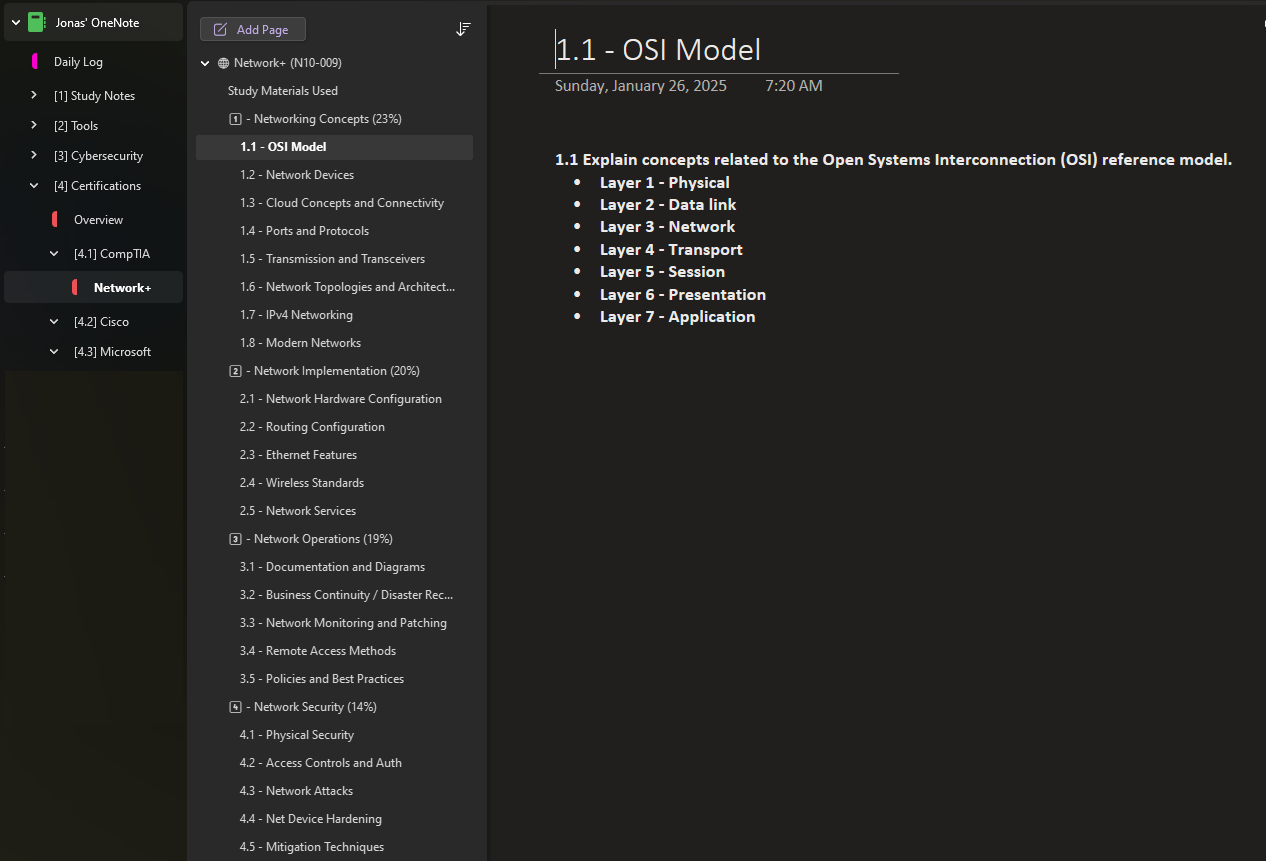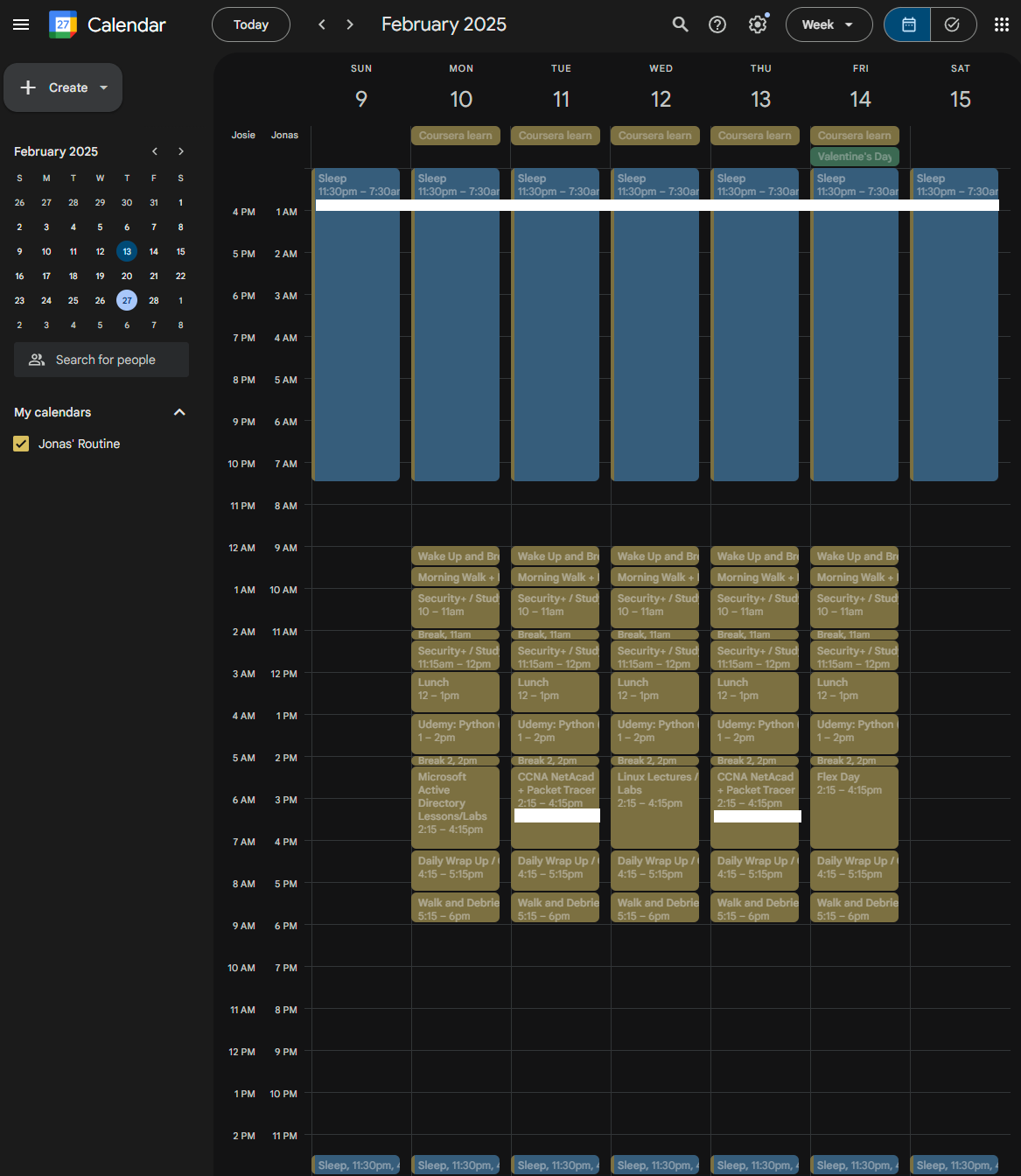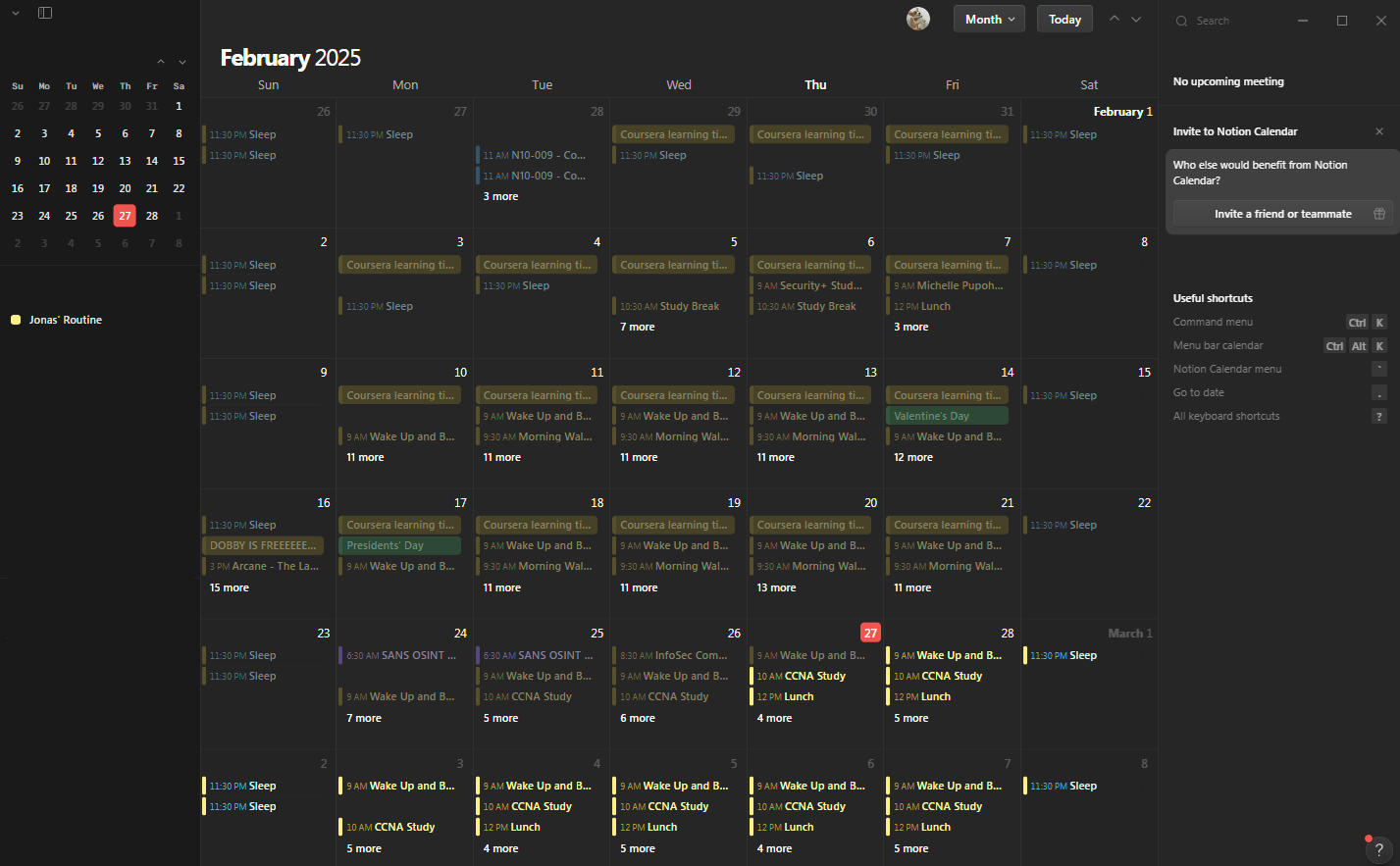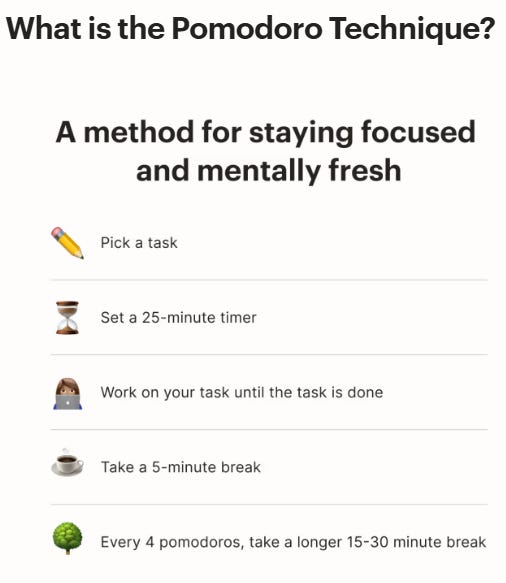The CompTIA Trifecta (in Three Months)
Spoilers: it's not easy, but it's also not impossible.
Who Am I?
Hi there, fellow IT journeymen!
My name is Jonas, or Kiyoo, and I’ve been working in the tech sector for the past three years, primarily in sales, at small companies such as Apple, Verizon, and Tesla. In my free time, I’m largely messing with my computer and homelabbing to practice Active Directory management and breaking virtual machines for the millionth time this week.
I earned my CompTIA trifecta from Nov 2024 - Feb 2025 in order to transition from tech sales to IT and cybersecurity, which was honestly a long time coming given my history with electronics and networking.
I’ve been tinkering with Windows PC’s, jailbreaking iPod touches, finding funny diagnostics menus on Androids, and messing with my Wi-Fi router’s settings for nearly as long as I can remember.
I am what most would consider to be the quintessential tech nerd:
I’ve built most of my closest friends’ computers from scratch.
I’m usually the first person in the family people go to for tech support.
My YouTube feed looks like a curated hub for tech influencers such as MKBHD, LTT, Optimum, and Dave2D.
Now that you have a general idea of my background in tech, here’s how you can pass your CompTIA trifecta (A+ / Network+ /Security+) in a reasonable amount of time as well!
Note: We will be aiming for an average of one cert per month.
What you’ll need
A calendar/organizer of your choice.
(Recommended) Microsoft OneNote
This will help you keep your certification study materials organized and monitor your progress towards covering all exam objectives.
(Recommended) Google / Notion Calendar
This calendar should sync with your PC and mobile devices, ensuring you keep pace with study blocks, take your breaks, and get enough sleep between sessions.
The screenshots attached are just examples, but you can and should customize your study sessions accordingly. Account for any breaks, events, and sleep to allow your mind to recuperate and process information.
A copy of the exam objectives
Select every exam you intend to take to avoid sharing your contact information more than once with CompTIA.
PRINT THEM OUT and use them as a checklist to highlight your strengths and weaknesses.
An exam voucher
There are several ways to get a voucher (ordered by pricing/convenience):
(Recommended, if included) Training/College Courses
(Recommended, if offered) Employer Reimbursement
Per CompTIA: If you're looking for ways to spice up your career, it doesn't hurt to ask your current employer if they offer employee benefits for tuition reimbursement or professional development options. Some employers will offer you a discount towards getting your next certification.
(Recommended, if eligible) Academic Store
Per CompTIA: Actively registered students of four-year-degree institutions (and some two-year institutions) in the United States can get 40% off vouchers and 65% off learning products in the CompTIA Academic Store.
(Recommended, if not eligible for any of the above)
Trusted third-party with discounted vouchers such as Professor Messer or Dion Training
An undying commitment to consistency, planning, and taking care of your overall health.
No, seriously. Burnout is a very real thing when you’re crunching this much information into such a short amount of time. It is extremely difficult to remember what you studied if you can’t even remember what day of the week it is. Planning out your schedule ahead of time ensures you stay on track and can get back on track if anything happens or changes.
The Secret Sauce
Passing CompTIA certification exams is mostly about time management. You must be able to block off as much time studying as you are resting. The density of the content is such that if you try to absorb it all in one day, you will burn out quickly and lose information just as fast.
For the exam, skip the Performance Based Questions (PBQ’s) and go through all the multiple-choice questions first as quickly as you can. Flag anything you’re unsure about for review near the end. We will talk more about exam day below in Phase 4.
The key to this balance is assigning yourself checkpoints to measure progress.
So, what’s the plan?
Phase 1: Preparation (Week 1)
Watch videos, make or read some study notes to follow along.
Let everything soak into your head.
You may choose to cover all domains at once (by video) if you have a good memory or focus on one domain at a time and repeat this phase.
FAQ: What is a “domain”?
Each CompTIA exam is separated into multiple domains. For example, the A+ Core 1 has five domains, each separated into subdomains or competencies.
(eg. Domain 1 - Mobile Devices, Subdomain 1.1 Install and configure laptop hardware.)Note: some domains are weighed MORE heavily than others
Phase 2: Identification (Week 2)
Quiz yourself, attempt an initial first practice exam, make flashcards for terms (especially for Security+, they're heavy on abbreviations)
Pro Tip: Save yourself time (and money!) by jotting down difficult questions as you watch through videos in Phase 1. By the end of Phase 1, you should have enough questions to quiz yourself on each domain (at minimum) and possibly have enough for a full practice test.
As best practice, you should save definitions for flashcards, and concepts for quizzes. For example, “What is Wi-Fi?” should be a flashcard while “How is 2.4GHz Wi-Fi different from 5GHz?” should be a quiz question.
Phase 3: Recovery (Week 3)
Revisit your weakest topics based on your practice exams! If you don't get something, see if someone else explains it better, or maybe find a new way to learn the concept. Prefer visuals? Look at diagrams or animations for topics such as public-private key or certificate signing.
Pro Tip: This is a good time to reach out to your peers! Join a Discord or reputable online community and ask questions. This is the time to know what you don’t know and make mistakes. Find a study group, pick someone else’s brains, and get good.
Phase 4: Lessons Learned (Week 4)
Leading up to test day, you should have a hot sheet/cheat sheet with brief summaries of each domain. Take one last practice exam the day before to gauge if any new weaknesses are showing, and briefly review, but otherwise, you should be ready!
Pro Tip: Before test day, get a full night’s rest. Plan to wake up an hour earlier for a light meal and a quick review of your cheat sheet to beat mental fog.
If you are attending your exam in-person, try to visit the testing center ahead of time and know your route.
If you are using OnVue online proctored exam, ensure your test area is clear and perform a hardware test before the exam.
This will save you a lot of headaches and keep you focused on the exam rather than stressing over being late, technical problems, or other hinderances.
Great, what material should I use?
Disclaimer: I strongly recommend building your own study notes, quizzes, practice tests, and flashcards. Not only because it is a tremendous money saver, but also because it reinforces what you’ve already spent so much time learning.
If you’re in an extreme time crunch, I would also suggest using ChatGPT for free to generate short quizzes for you in lieu of paying for pre-made practice tests.
Summary of Fully Featured Courses
In my opinion, Professor Messer’s coverage of A+/Network+/Security+ remains the strongest foundation for most learners. The videos are short while retaining enough information to beat the exams but requires active listening skills (meaning you should be taking notes while watching) to make the most of the content.
Jason Dion’s training is better for individuals who want tangential and industry-relevant knowledge that can stand on its own without a CompTIA certification. His tendency to dive into out-of-scope details draws out the length of his courses, but you will be better off in the end if you are working already in IT and want more context with your studies. I personally used his videos on Udemy to flesh out some subjects that I felt Professor Messer may have left unanswered, and I felt his Security+ course was far more substantial in detail and practical examples.
Andrew Ramdayal’s courses I felt were best for individuals who prefer a more conversational teaching style. Expect less professional polish than Messer, less technical jargon than Dion, but this may be extremely beneficial for individuals who have no exposure to IT or technology besides their smartphones or work PC and need more relatable comparisons or alternative methods of explaining concepts that are harder to grasp or too abstract such as VLAN’s. In my opinion, he also has some of the best practical labs.
Pro Tip: I would recommend Udemy for the latter two instructors as the value proposition ($35/mo) cannot be beat for effectively unlimited access to both for three certifications.
Fully Featured Courses (Videos + Notes + Practice Exams)
(Recommended, Free) Professor Messer - YouTube
Security+ (SY0-701) Course Playlist
Note: While Professor Messer’s videos are free, his notes and practice exams are available standalone for purchase or as part of a whole package. I recommend choosing the package that best suits your needs.
(Recommended, Paid)
Study Notes
(Recommended, Paid) Professor Messer
Even though Jason and Andrew’s courses on Udemy provide course notes as part of their courses, I found Messer’s notes to be ideal for exam day review and his diagrams were far more accessible and informative than the others.
Practice Exams
(Recommended, Paid) Udemy (Dion)
Out of the three, Dion Training’s exams provided the most detail and best immediate feedback with Study Mode and Practice Test proving the best benchmark of exam day performance across my three tests.
(Good Value, Paid) Crucial Exams
A relative newcomer to the test prep suite, Crucial Exams has been good value for me personally (currently $15/mo at time of writing) to simulate PBQ’s and multiple-choice questions. You won’t find a better value for the money, though you’ll find many in the community skeptical if the questions measure up to the actual level of CompTIA. I would say it’s as close as you’ll get to a testing environment outside of an actual exam, and the UI and website is always fluid.
Best Practices
1. Schedule your exam, now.
Nothing puts a fire under your butt quite like a deadline. Remember that CompTIA allows you to reschedule your exam up to 24 hours before your appointment, so the worst-case scenario is pushing it a little back, but you should be working as if you are committing to that deadline.
2. Figure out how you learn best.
Take a learning style quiz. Explore study techniques such as the pomodoro technique.
3. Eliminate distractions. Maximize productivity.
This means set your phone on focus mode/vibrate and kill your social notifications. This means you mute your Discord, Instagram, Facebook, and LinkedIn.
This means that new season, episode, or upload can wait.
It’s time to study.
4. Stick to the plan.
We already spent an entire wall of text above getting ready for this test. Don’t let a spontaneous meetup, fire sale, or anything distract you from why you are here.
5. Give yourself a break (often).
Sticking to the plan doesn’t mean study non-stop for eight hours straight. You still have to eat, sleep, and hydrate.
Leave your weekends open for seeing friends, family, and going outside. While you could use parts of the weekend to make up for pace, I wouldn’t recommend it as your brain needs time to recover and process. You could certainly share what you’ve learned with someone else, and I highly encourage it if they’re willing to entertain the idea.
6. It’s okay to slow down.
If you’re struggling with a concept or topic, that’s good. It means you’re trying your best. Reach out to your peers, find other ways to understand it, but don’t run yourself down over nothing. Remind yourself that if it was easy, everyone would do it. Challenging yourself in this way won’t always be simple and often isn’t. That’s just the nature of the beast.
7. It’s okay to fail.
We’re all afraid of not performing, but oftentimes we lose track of how far we’ve made it before we ran into failure.
Use your exam objectives as a checklist.
It’s important to keep track of our exam objectives and progress, because otherwise it would feel like we went from zero to not-hero and that would suck.
Use a journal or your notes to record any difficulties grasping a concept or term.
What did you learn from this? Did you not study enough on a practice test? Did you get hung up on terminology? Where is the source of your shortcomings? It won’t feel good to admit your weaknesses, but the sooner you do, the sooner you reach number 8.
8. It feels great to succeed and pass.
After you pass your first CompTIA cert, you’ll experience a type of high that will be hard to forget. Passing your A+ will fuel your desire to pass Net+, which will boost your confidence for Sec+. It’s a domino effect and a major reason why CompTIA recommends this path. Not only because it builds on your knowledge in succession, but it feels amazing to overcome all those steps and reach your finale. This should be the mentality you have, real progressive growth.
Don’t forget to celebrate your wins and passes with friends, family, and your peers!







